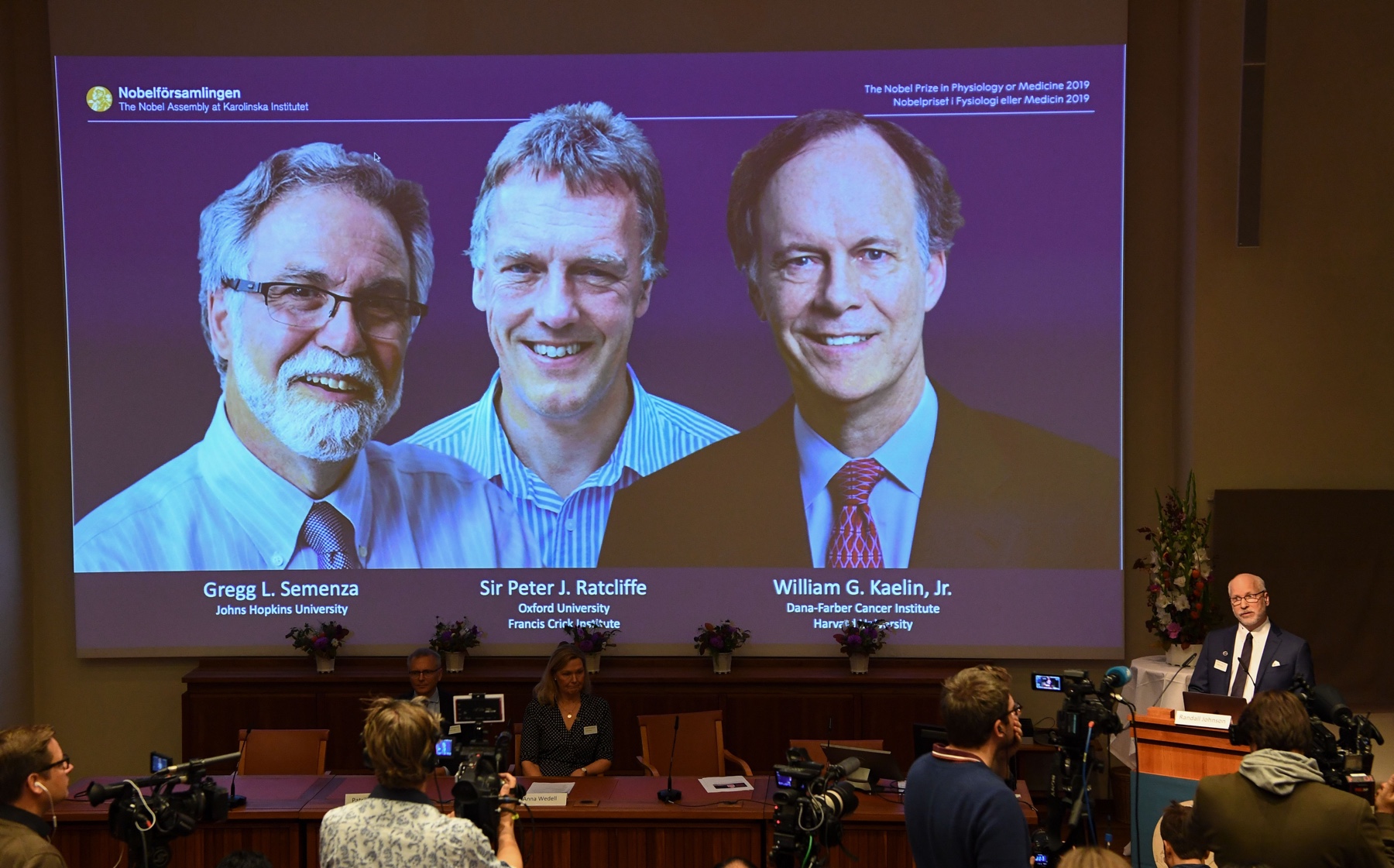Trio Wins Nobel Prize in Medicine for Figuring Out 'One of Life's Most Essential Adaptive Processes'

This year's Nobel Prize in physiology or medicine has been awarded jointly to three scientists who figured out how cells sense and adapt to changes in levels of oxygen, the Nobel Assembly at Sweden's Karlinska Institute announced this morning (Oct. 7).
The three Nobel Laureates, William G. Kaelin Jr, Sir Peter J. Ratcliffe and Gregg L. Semenza, identified the molecular machinery that turns the activity of genes up or down in response to varying levels of oxygen.
"The seminal discoveries by this year's Nobel Laureates revealed the mechanism for one of life's most essential adaptive processes," according to the Nobel Prize organization.
Related: The 10 Noblest Nobel Prize Winners of All Time
The ability of cells to detect oxygen levels and respond is essential to keeping the body functioning and can play a big role in some diseases. At the most basic level, cells need oxygen to convert food into energy.
"Cells and tissues are constantly experiencing changes in oxygen availability. As an embryo grows and develops, as muscles work, the oxygen available changes as the tissues themselves change," a member of the Nobel committee, Randall Johnson, said this morning during the announcement in Sweden. "Cells need a way to adjust to the amount of oxygen they have while still doing their important jobs."
For instance, during intense exercise, muscle cells must adapt to higher oxygen demands. Oxygen-sensing machinery is essential for fetal development, as it controls normal blood vessel formation and the development of the placenta, the Nobel Prize organization wrote. The machinery also plays a role in anemia and even cancer — stimulating the formation of blood vessels so cancer cells can spread.
Get the world’s most fascinating discoveries delivered straight to your inbox.
Semenza was born in New York and performed his prize-winning research at Johns Hopkins University in Baltimore, where he continues to do research. Ratcliffe was born in Lancashire in the U.K., and he is currently at the University of Oxford and the Francis Crick Institute in London, where he also did his prize-winning work. Kaelin was also born in New York and carried out his prize-winning research at the Dana-Farber Cancer Institute in Boston, where he is still active.
The three scientists will share equally the Nobel prize of 9 million Swedish kronor (about $909,000).
Originally published on Live Science.
Jeanna Bryner is managing editor of Scientific American. Previously she was editor in chief of Live Science and, prior to that, an editor at Scholastic's Science World magazine. Bryner has an English degree from Salisbury University, a master's degree in biogeochemistry and environmental sciences from the University of Maryland and a graduate science journalism degree from New York University. She has worked as a biologist in Florida, where she monitored wetlands and did field surveys for endangered species, including the gorgeous Florida Scrub Jay. She also received an ocean sciences journalism fellowship from the Woods Hole Oceanographic Institution. She is a firm believer that science is for everyone and that just about everything can be viewed through the lens of science.
 Live Science Plus
Live Science Plus





